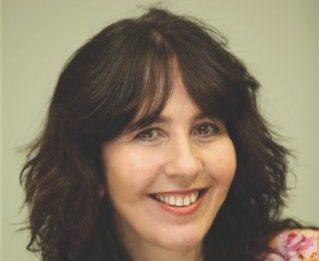
The Jewish Report Editorial

Fighting for those rights we don’t have
PETA KROST MAUNDER
It doesn’t happen because we live in an era where nobody can dispute our rights.
There may be some who criticise my choice as a mother to work for a living and have my independence. Fortunately, I don’t have to listen to them.
When I was younger, I felt societal pressure to marry and have children. That dreaded refrain, “soon by you” became so irritating. I mean, do people really think that every Jewish woman finishes school and starts waiting, watching, and hoping for a match? Then, just as soon as she finds her mate, she and her husband go full swing into producing a family.
While having a family is the most precious part of my life, isn’t it possible that women might want a more varied life? Isn’t it possible that they may want to build a career as well? Perhaps they aren’t in a hurry to get married, and choose to travel, develop themselves, or make a name for themselves first. Believe it or not, there are some women who choose not to marry or have children. I know this sounds odd to some of us in this community, but it’s true.
While that wasn’t my choice, I believe every woman has a right to choose her path. We have fought for many years to have that right, among others.
There are fascinating stories in our special supplement this week, “Celebrating Women”. I was particularly taken by a story (page 10) about Bertha Solomon. In the 1930s and 1940s, she fought and ultimately succeeded in changing the law so that women could have control over their property, income, and children. This change in the law occurred only 66 years ago.
We have come a long way, but we still have a way to go.
South Africa has been a bit of an enigma when it comes to women’s-rights activism. Consider that on 9 August 1953 (the day that we now celebrate National Women’s Day), 20 000 women of all races marched to the Union Buildings in Pretoria to protest against the pass laws. So, while we are celebrating women this month, we are also celebrating those women who fought for the rights of all the disenfranchised people of this country, not specifically women. In fact, during the struggle, women’s rights took a backseat to fighting against apartheid.
So, while we may be ensconced in the boardroom, we still live with the scourge of an epidemic of rape in this country. More than 40 000 women reported being raped in South Africa in the year 2017/18, and there is believed to be far fewer women who report the crime than fall victim to it. Apparently, we live in the rape capital of the world. This speaks to serious gender inequality.
We also have a serious problem with domestic violence – that terrifying war that happens behind closed doors. And, it’s never easy for women in those situations to leave their partners, in spite of the apparently good Domestic Violence Act.
Another major gender disparity is the vast number of men who never pay maintenance for their children in spite of being ordered to do so by a court. It’s estimated to be as high as 50%.
On the surface, it looks like women’s rights are taken care of. We are in the boardroom, but for the most part, we aren’t the chair of the board. We even have a special government department for women, and I’m still not quite sure what it does.
Many Jewish women are fortunate, and have so much going for us. While I believe men need to ensure that our rights are entrenched, it’s incumbent on us women to do whatever we can for other women.
We need to give a helping hand to those less fortunate than us, and be willing to go the extra mile for a sister who is less privileged. The truth is that women’s legal rights are very much linked to socio-economic rights.
I love the fact that the South African Jewish Board of Deputies brought out the group Women Wage Peace to show South Africans of all backgrounds that Israel is multicultural, and there are many Israelis fighting for peace.
I love that this is a women’s organisation pushing for peace, using its experience to bridge the gaps between Jews, Muslims, and Christians. This makes so much sense to me.
How about you? What can you do to bridge gaps and help others?
Academic Freedom at UCT
I turn briefly to other rights, that of academic freedom. I’m astonished and appalled at the fact that the University of Cape Town (UCT) has invited Dr Steven Salaita to deliver its annual academic freedom lecture. There is nothing about Salaita that believes in academic freedom, quite the contrary. His aim is clearly to entrench an academic boycott against Israel. How can that bolster academic freedom?
This is hugely distressing in light of the fact that UCT is already considering an academic boycott against Israel. Having Salaita speak seems to be a case of the university nailing its colours to the mast in the debate.
Although we will wait until next week to hear what Salaita actually said, we can’t help but be even more concerned about where the university – an alma mater to so many of us in the community – is going.
As we count down towards Tisha B’Av, the saddest day on our Jewish calendar, I pray that this year, it will herald only simchas and joy.
Shabbat Shalom and happy Women’s Day!




